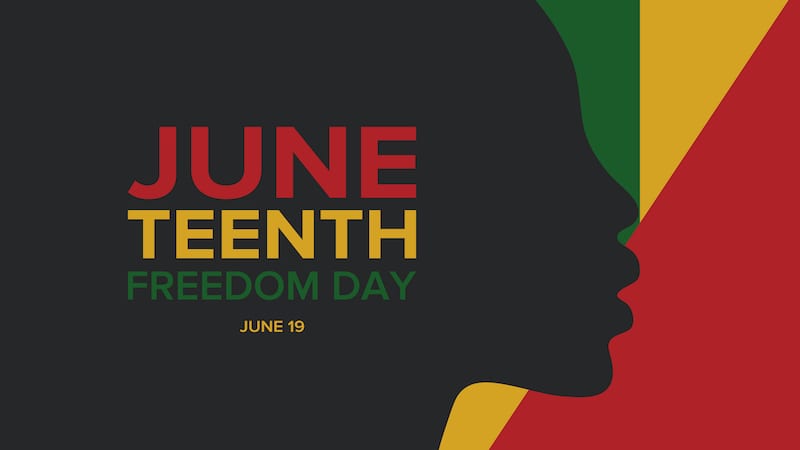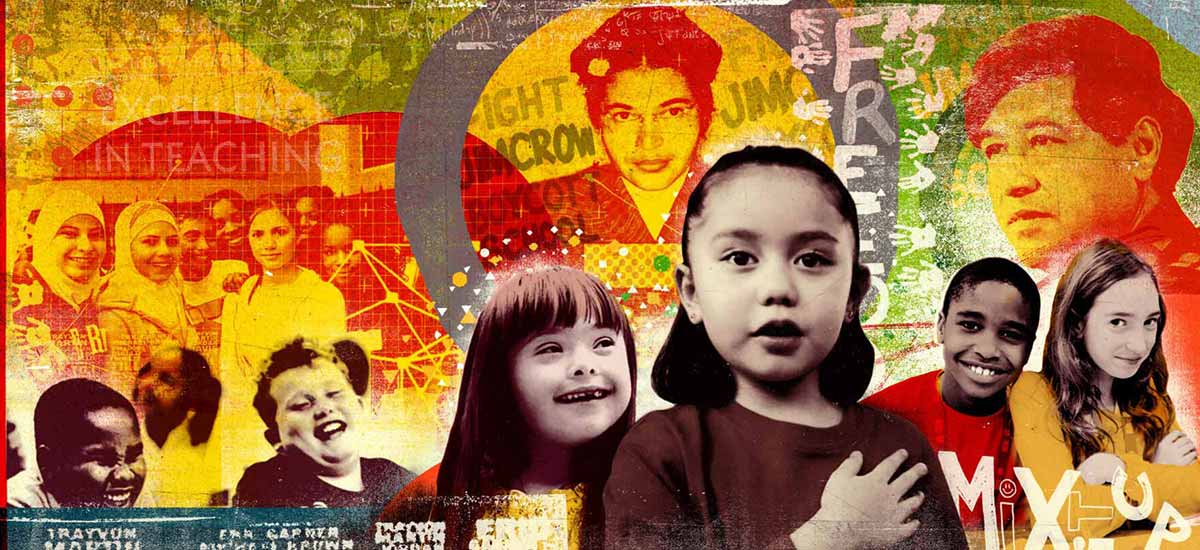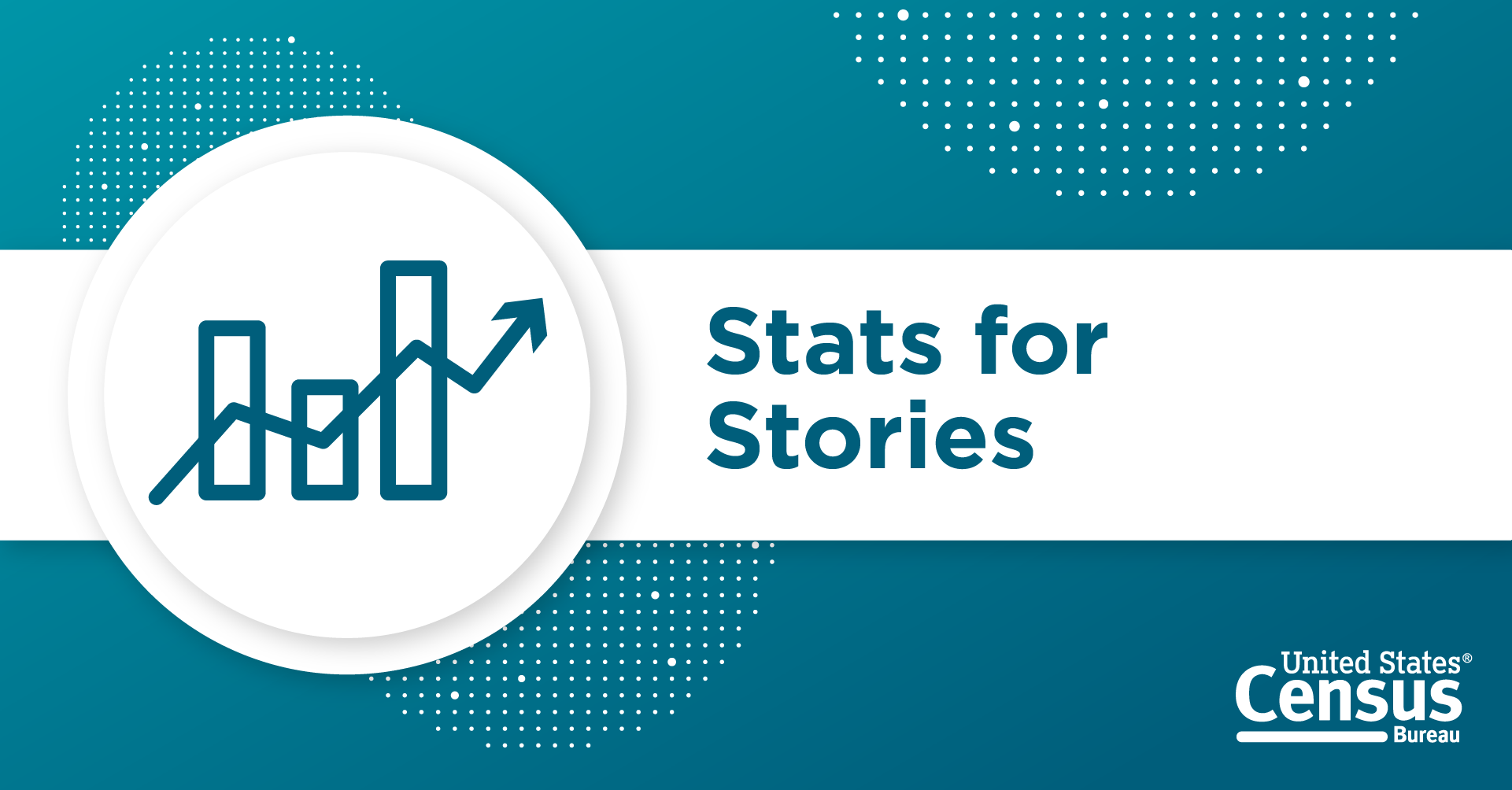
Cultural Diversity & Equity
Summer 2022 Newsletter
In This Issue
- LGBTQ Pride Month
- Juneteenth
- Caribbean American Heritage Month
- Fourth of July
- French-American Heritage Month
- ADA 32nd Anniversary
- Religious Holidays
Did you see us this summer?
ICCSD Statement of LGBTQ+ Inclusion
The Iowa City Community School District is committed to creating a safe and inclusive school environment for all students free from harassment, intimidation, bullying, and discrimination on the basis of gender identity and sexual orientation.
School climate is an important predictor of student success for all students, however, schools can be especially unwelcoming for lesbian, gay, bisexual, transgender, and questioning (LGBTQ+) youth. Research shows that LGBTQ+ students, nationally, and in Iowa, experience discrimination, harassment, and violence more frequently than their non-LGBTQ+ peers. Data from the District’s 2017 School Climate Report reveals that students who identify as LGBTQ+ are significantly less likely to report that they feel they belong in school, that school staff is supportive of them and that they feel that their contributions are valued in the classroom.
The District is devoted to addressing the needs and inequities that LGBTQ+ youth face in our schools. This commitment to inclusion of our LGBTQ+ students builds on existing Iowa law and current District policies. Incorporating an inclusive atmosphere free from discrimination is identified in Title IX, the Iowa Code, the District’s non-discrimination policy, and the District’s mission statement. It is our shared responsibility to ensure every member of our school community is valued and respected regardless of gender identity and sexual orientation. We are actively working to create more inclusive policies and practices that support and affirm the identities of LGBTQ+ students. We believe that learning about the diversity of humankind is an essential part of education in a democratic society. We encourage our students, staff, and members of the community to celebrate the inclusiveness and diversity that contributes to growth, success, safety, and quality of life for everyone at the Iowa City Community School District.
Approved: 4/24/2018
ICCSD LGBTQ+ Administrative Guidelines
On August 21st, 2019 the Iowa City Community School District adopted new LGBTQ Administrative Guidelines which are housed under our existing Bullying and Harassment policy.
These guidelines set expectations for ICCSD staff and students and serve as a resource to facilitate the consistent implementation of the following LGBTQ-specific policies. Our guidelines cover a broad scope of protocols, as listed below:
- Bullying, Harassment, and Discrimination
- Privacy/Confidentiality
- Names, Pronouns, and School Records
- Access to Facilities
- Interscholastic Activities
- Intraschool Events, Ceremonies, and Activities
- Inclusive Curriculum
- Gender and Sexuality Alliances (GSAs)
- Adult Advocates
- Access to Supportive Resources
- Dress Code
- Student Transitions
- Training and Professional Development
- Accountability
We have a professional responsibility to comply with all of the parts of the LGBTQ Guidelines under the purview of the ICCSD Equity Department. More professional development opportunities are always available for those who need additional support to be successful in practicing these policies.
This has been a momentous moment in the movement to create a safe and inclusive environment for our LGBTQ students, and the members of the LGBTQ Planning Committee have never wavered or lost their focus on the goals for their children. They are all a testament to their profession and deserve our utmost gratitude!
Let's Learn About Letters
What does LGBTQIA stand for?
Lesbian
Gay
Bisexual
Transgender
Queer
Intersex
Asexual
To see a glossary of terms, click here to view GLAAD's Media Reference Guide
LGBTQ+ Pride Month
How did Pride Month begin?
In June of 1969 in Greenwich Village, police raided the Stonewall Inn. They arrested patrons as onlookers grew more and more restless and discontent. Eventually (there is no consensus on who started), violence broke out, and homophobic police were forced to retreat. Confrontations continued over the span of several days.
This would prove to be a pivotal moment in the Gay Rights Movement, and activists began organizing protests, marches, and events. A few days after the Stonewall Riots activists gathered for a "gay power" rally in Washington Square Park. Just a year later they organized a match to Central Park (NYC) and the term "Gay Pride" was adopted.
This movement steadily grew and has become a massive celebration nationwide!
To learn more about the Stonewall Riots, and the origin of Pride Month, click here.
LGBTQ Rights Movement
The LGBTQ movement has grown since the 1969 riots as queer activists have fought for the decriminalization of homosexuality, equal opportunities for employment, the right to marry, and the right to serve in the military.
There have been many successes, such as the board of American Psychiatric Association removing homosexuality from its list of mental illnesses in 1973, Wisconson outlawing discrimination on the basis of sexual orientation in 1982, to June 26th, 2015 when a U.S Supreme Court decision (Obergefell v. Hodges) declares same-sex marriage legal in all 50 states.
Among these triumphs were also many obstacles. The AIDS epidemic that ravaged the LGBTQ community, discriminating policies like "Don't Ask, Don't Tell", countless hate crimes and murders of LGBTQ individuals, and increasing introduction of anti-LGBTQ policies are just some of the struggles that this movement fights against.
To see a list of milestones in the American Gay Rights Movement, click here!
Can You Identify All 15 Pride Flags?
Check out these cool resources for celebrating Pride!
General Order No. 3
On June 19th, 1865 federal troops traveled through Texas to announce the end of the Civil War, and that all people who were enslaved should be free. Although Confederate Gender Robert E. Lee had surrendered two months prior, because of its isolation, slavery Texas was relatively unaffected.
It was not until General Gordan Granger read General Order No. 3 which stated that:
- "The people of Texas are informed that, in accordance with a proclamation from the Executive of the United States, all slaves are free.”
To view the original document, click here.
The Emancipation Proclamation
Although General Granger's General Order No. 3 was read in 1865, a federal executive order given by Abraham Lincoln was actually given two years prior in 1863.
This order is called The Emancipation Proclamation, issued on January 1st, 1863 proclaiming that all persons held as slaves within rebellion states are now free. This proclamation effectively changed the legal status of more than 3.5 million enslaved African Americans in confederate states.
There were shortcomings, however. This order only affected enslaved persons in states that had rebelled against the Union and were under Confederate control. This means that many border states and rebel areas already under Union control were exempt. As Union troops moved into the South, however, many enslaved people fled behind Union lines.
To view the original document, click here.
Was Juneteenth the end of slavery and racism in the United States?
Even after General Order No. 3 was issued, slavery was still legal in Deleware and Kentucky for months, until the 13th Amendment abolished chattel slavery.
Even after the 13th amendment, enforcement was slow to roll out, and African Americans faced obstacles like Jim Crow Laws, discrimination, and violence, some of which are still seen and felt today.
We would like to acknowledge the complicated and painful history of this day and stand together to celebrate and support our students, staff, and families of color in this district.
Check out our "Upcoming Events" section to see ways you can celebrate Juneteenth!
Check out some resources to learn more about Juneteenth
The first time this month was observed was back in 2006 when a Proclamation was issued by President George W. Bush due in part to the efforts of Congresswoman Barbara Lee of California.
Take a look at these resources below!
This month many in the United States celebrate the Fourth of July, or Independence Day! This is a federal holiday in the U.S that celebrates the Declaration of Independence on July 4, 1776. On this day, Americans participate in parades, go to festivals, watch fireworks, and eat an unreasonable amount of hotdogs (or vegan dogs!). It is also a day to reflect on our history, our culture, and our values.
History
The Declaration of Independence was written by the Continental Congress, back when there were only 13 American colonies as representatives. It declared that the colonies were no longer subject to Britain, and King George III. It stated that they were now united, free, and independent states.
The Declaration was actually voted on by Congress on July 2nd, but it wasn't officially declared until July 4th!
Who signed?
The writing of the Declaration was actually a team effort. Thomas Jefferson initially wrote the declaration, and then later Benjamin Franklin, and John Adams worked to make changes to the document. They finished the final draft on July 4th, 1776, and the signing was held on August 2, 1776.
Delegates from all 13 original colonies signed the document, and no matter how large their signature (John Hancock), they showed their united support for independence.
The signers of the Declaration of Independence are as follows:
- Delaware: George Read, Caesar Rodney, Thomas McKean
- Pennsylvania: George Clymer, Benjamin Franklin, Robert Morris, John Morton, Benjamin Rush, George Ross, James Smith, James Wilson, George Taylor
- Massachusetts: John Adams, Samuel Adams, John Hancock, Robert Treat Paine, Elbridge Gerry
- New Hampshire: Josiah Bartlett, William Whipple, Matthew Thornton
- Rhode Island: Stephen Hopkins, William Ellery
- New York: Lewis Morris, Philip Livingston, Francis Lewis, William Floyd
- Georgia: Button Gwinnett, Lyman Hall, George Walton
- Virginia: Richard Henry Lee, Francis Lightfoot Lee, Carter Braxton, Benjamin Harrison, Thomas Jefferson, George Wythe, Thomas Nelson, Jr.
- North Carolina: William Hopper, John Penn, Joseph Hewes
- South Carolina: Edward Rutledge, Arthur Middleton, Thomas Lynch, Jr., Thomas Heyward, Jr.
- New Jersey: Abraham Clark, John Hart, Francis Hopkinson, Richard Stockton, John Witherspoon
- Connecticut: Samuel Huntington, Roger Sherman, William Williams, Oliver Wolcott
- Maryland: Charles Carroll, Samuel Chase, Thomas Stone, William Paca
Franco-American Day began in Connecticut but has since spread to many parts of the country.
Today there are about 11.8 million Franco Americans in the U.S, and 1.6 million who speak French at home.
In Iowa, an important settlement was colonized in part by French pioneers and French Canadians. Can you guess what it was?
A small settlement called Des Moines!
To learn more, check out these resources
The Americans with Disabilities Act (ADA) became law in 1990 and is a civil rights law that prohibits discrimination against individuals with disabilities in all areas of public life. This law encompasses jobs, schools, transportation, and all public and private places that are open to the general public.
To see an overview of the Americans With Disabilities Act, click here.
The ADA was first introduced in the 100th Congress and was signed into law on July 26th, 1991 by President George H. W. Bush. The bill eventually went through changes, and the ADA Amendments Act of 2008 was enacted on September 25th, 2008. These amendments broader the scope of the ADA, and widened protection to include individuals with impairments such as cancer, diabetes, and epilepsy.
We want to celebrate this historic event, and to look back at all the positive changes this legislation has made for Americans with Disabilities.
Check out the resources below to learn more about the ADA.
Commemorative Observances
This year we will acknowledge the various diverse cultures that are celebrated throughout the year. We understand that our calendar may not be all-inclusive, so if you are aware of any cultural holidays or months of observance that we should know about, feel free to reach out and let us know.
African American History Month (February)
National African American History Month in February celebrates the contributions that African Americans have made to American history in their struggles for freedom and equality and deepens our understanding of our Nation's history.
Women's History Month (March)
Women’s History Month honors and celebrates the struggles and achievements of American women throughout the history of the United States.
Irish-American Heritage Month (March)
Irish-American Heritage Month is a month to celebrate the contributions which Irish-Americans have made to the United States.
Jewish American Heritage Month (May)
Jewish American Heritage Month is a month to celebrate the contributions Jewish Americans have made to America since they first arrived in New Amsterdam in 1654.
Asian Pacific Heritage Month (May)
Asian/Pacific American Heritage Month is a month to celebrate the contributions Asian/Pacific Americans have made to American history, society and culture.
Lesbian, Gay, Bisexual, Transgender and Queer Pride Month (June)
Lesbian, Gay, Bisexual, Transgender and Queer Pride Month commemorates the events of June 1969 and works to achieve equal justice and equal opportunity for LGBTQ Americans.
National Hispanic Heritage Month (September 15 - October 15)
National Hispanic Heritage Month celebrates and recognizes the contributions Hispanic Americans have made to American society and culture and honors five of our Central American neighbors who celebrate their Independence days in September.
National Disability Employment Awareness Month (October)
National Disability Employment Awareness Month celebrates the accomplishments in the workplace of persons with disabilities and reaffirms the commitment to ensuring equal employment opportunities to all citizens.
American Indian Heritage Month (November)
National American Indian Heritage Month celebrates and recognizes the accomplishments of the peoples who were the original inhabitants, explorers and settlers of the United States.
By Month
https://www.loc.gov/law/help/commemorative-observations/index.php
Happy Holidays!
- Martyrdom of Guru Arjan Dev Sahib - Friday, June 3rd
- Shavout (1st Day) - Saturday, June 4th
- Núr (Light) - Sunday, June 5th
- Shavout - Monday, June 6th
- Pentecost - Sunday, June 12th
- Corpus Christi - Thursday, June 16th
- Martyrdom of Guru Arjan Dev Ji - Thursday, June 16th
- Raḥmat (Mercy) - Friday, June 24th
- Feast of the Sacred Heart - Friday, June 24th
- Litha - Friday, June 24th
- Ghambar Maidyoshem Begins - Wednesday, June 29th
- Feast of Saints Peter and Paul - Wednesday, June 29th
- Green Corn Festival - Late June/Early July
- Iroquois Strawberry Ceremony - Mid June
- Hopi Kachina Dances
- Puri Rath Yatra - Friday, July 1st
- The Hajj Begins - Thursday, July 7th
- Waqf al Arafa - Hajj - Friday, July 8th
- Eid al-Adha - Saturday - Tuesday, July 9th
- Martyrdom of the Báb - Sunday, July 10th
- Kalimát - Wednesday, July 13th
- Asala - Dharma Day - Wednesday, July 13th
- Guru Purnima - Wednesday, July 13th
- Saint Vladimir - Friday, July 15th
- The 17th of Tammuz - Sunday, July 17th
- St. James the Great Day - Monday, July 25th
- Hijra (Islamic New Year) - Saturday, July 30th
Who is in the Equity Department?
Laura Gray, Executive Director of Diversity and Cultural Responsiveness
Email: Gray.Laura@iowacityschools.org
Website: iowacityschools.org/Equity
Location: 1725 N Dodge St, Iowa City, Iowa 52245, USA
Phone: 319 688 1000
Eric Howard, Director of Equity and Employee Relations
Email: howard.eric@iowacityschools.org
Website: iowacityschools.org/Equity
Location: 1725 N. Dodge St., Iowa City, IA 52245
Phone: (319) 688-1000
Carmen Gwenigale, Director of Curriculum, Instruction, and Assessment
Email: Gwenigale.Carmen@iowacityschools.org
Website: iowacityschools.org/Equity
Location: 1725 N Dodge St, Iowa City, Iowa 52245, USA
Phone: (319) 688-1000
Luke Dillon, Assistant Director for Equity and Curriculum, Instruction, and Assessment
Email: Dillon.Luke@iowacityschools.org
Website: iowacityschools.org/Equity
Location: 1725 N Dodge St, Iowa City, Iowa 52245, USA
Phone: (319) 688-1000
Charita Martin, Equity Coordinator
Email: Martin.Charita@iowacityschools.org
Website: iowacityschools.org/Equity
Location: 1725 N. Dodge St., Iowa City, IA 52245
Phone: (319) 688-1000
Brad Kelly, Restorative Justice Coordinator
Email: Kelly.Brad@iowacityschools.org
Website: iowacityschools.org/Equity
Location: 1725 N Dodge St, Iowa City, Iowa 52245, USA
Phone: (319) 688-1000
Frederick Newell, L.E.A.D. Project Director
Email: Newell.Frederick@iowacityschools.org
Website: iowacityschools.org/Equity
Location: 1725 N Dodge St, Iowa City, Iowa 52245, USA
Phone: (319) 688-1000
Priscilla Culp, Diversity and Equity Coach
Email: Culp.Priscilla@iowacityschools.org
Website: iowacityschools.org/Equity
Location: 1725 Dodge St Ct, Iowa City, Iowa 52245, USA
Phone: (319) 688-1000
Andrea Jayne, Equity Specialist
Email: Jayne.Andrea@iowacityschools.org
Website: iowacityschools.org/Equity
Location: 1725 N Dodge St, Iowa City, Iowa 52245, USA
Phone: (319) 688-1000
About Us
Non-Discrimination Policy
It is the policy of the Iowa City Community School District not to discriminate on the basis of race, color, national origin, sex, disability, religion, creed, age, marital status, sexual orientation, gender identity and socioeconomic status in its educational programs, activities, or employment practices. There is a grievance procedure for processing complaints of discrimination. If you have questions or a grievance related to this policy, please contact Eric Howard, Director of Equity & Employee Relations
Email: howard.eric@iowacityschools.org
Website: https://www.iowacityschools.org/domain/64
Location: 1725 N. Dodge St., Iowa City, IA 52245
Phone: (319) 688-1000







































